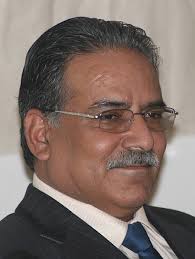Nepal's Prachanda says he can be blamed for only 5,000 deaths during civil war

- Country:
- Nepal
Former Nepal Prime Minister Pushpa Kamal Dahal 'Prachanda' on Wednesday said he can take the blame for the death of only 5,000 people out of the over 17,000 killed during the decade-long armed insurgency in the country. The Nepalese civil war known popularly as the Maoist Conflict or Maoist Insurgency was a ten-year armed conflict between the Communist Party of Nepal (Maoist) (CPN-M) and the government of Nepal, fought from 1996 to 2006.
The rebellion was launched by the CPN-M on February 13, 1996, with the main aim of overthrowing the Nepali monarchy and establishing a People's Republic. Over 17,000 people were killed during the entire conflict. The civil war ended with the comprehensive peace accord signed on November 21, 2006.
Speaking at a program organized by the Tharu ethnic community at Tundikhel Open Ground here on the occasion of Makar Sankranti, Prachanda, 65, said that blaming him for the loss of all 17,000 lives would be unfair. "Many things have been aired pinpointing on me. It is not true that I came here after killing 17,000 people," Prachanda said, defending himself against the blame of being responsible for the 17,000 deaths by the previous speakers during the program.
Prachanda, who is also the chairman of the ruling Nepal Communist Party, said it was the state force that killed the rest of the 12,000 people. "What is true is that the state forces killed 12,000 people. I take responsibility for only 5,000 deaths and the 'kings' of yesterday should take that for 12,000 others. To say that even those killed by the state were killed by me would not be fair," he said.
"I will not take responsibility for what I did not do," Prachanda added.
(This story has not been edited by Devdiscourse staff and is auto-generated from a syndicated feed.)










